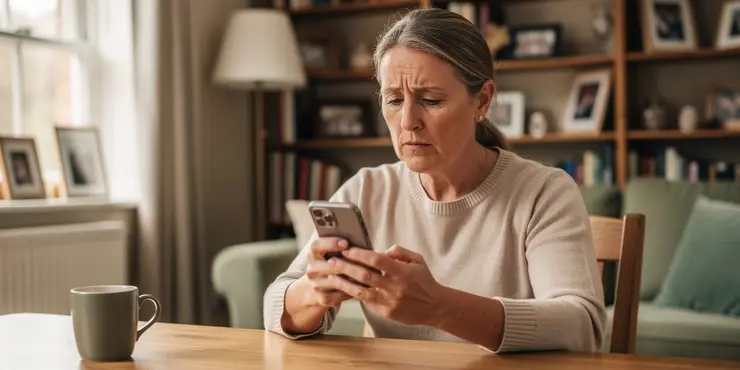
Find Help
More Items From Ergsy search
-
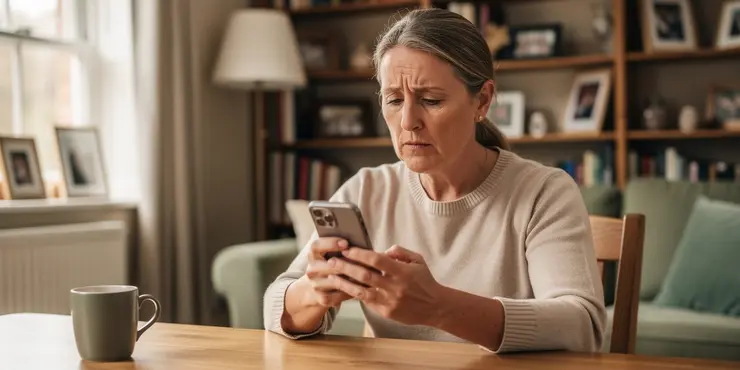
Can self-testing detect all eye conditions?
Relevance: 100%
-
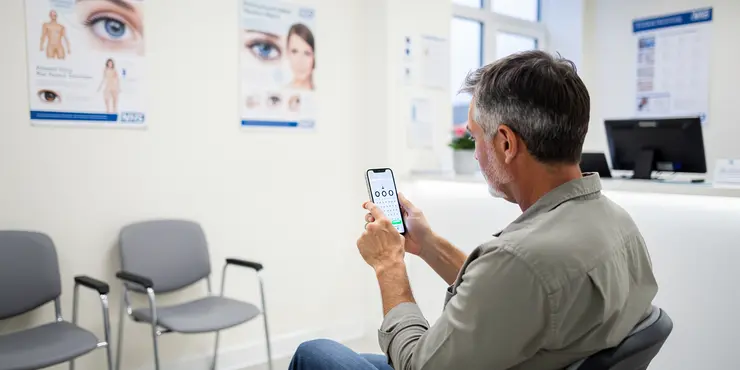
What are the limitations of self-testing for eyes?
Relevance: 89%
-
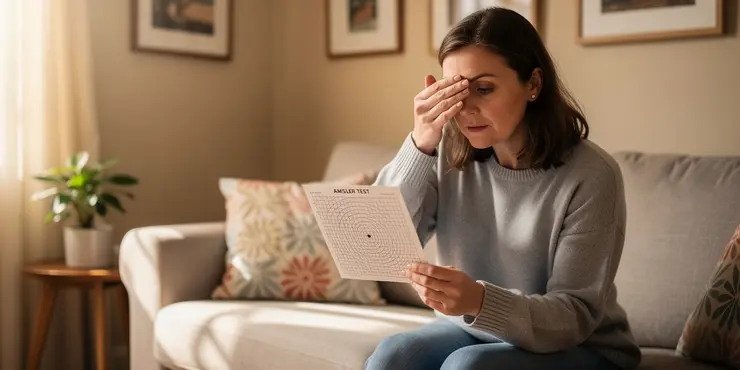
What is self-testing for eye patients?
Relevance: 87%
-
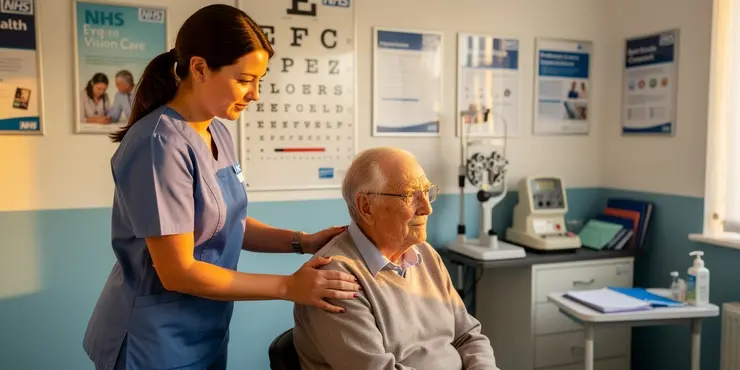
How often should I self-test my eyes?
Relevance: 84%
-
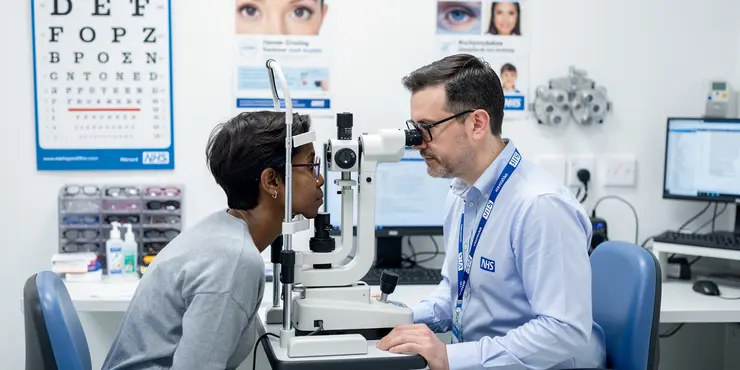
Are self-tests a substitute for professional eye exams?
Relevance: 83%
-
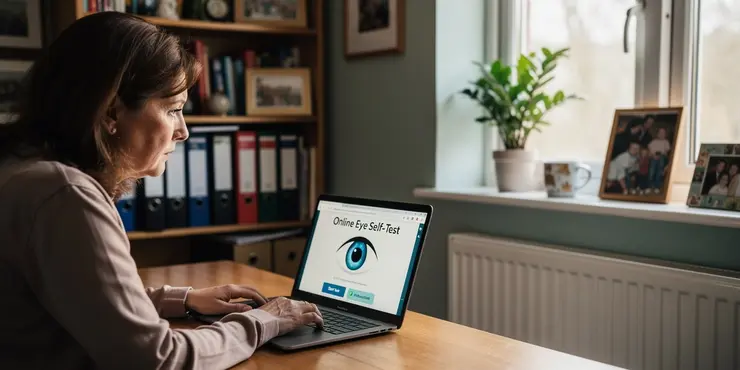
Why would someone need to self-test their eyes?
Relevance: 82%
-
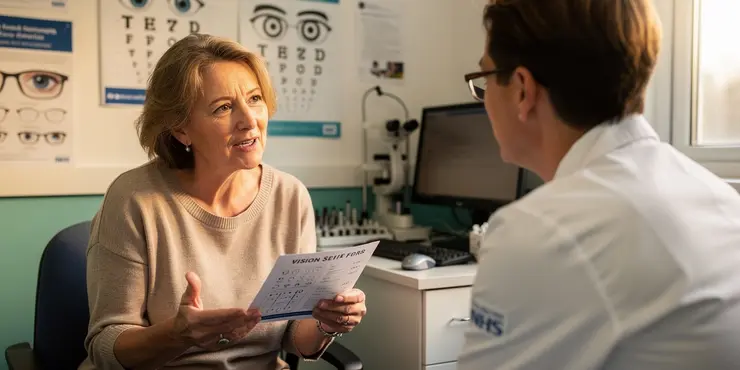
Should I share the results of my self-tests with my eye doctor?
Relevance: 81%
-
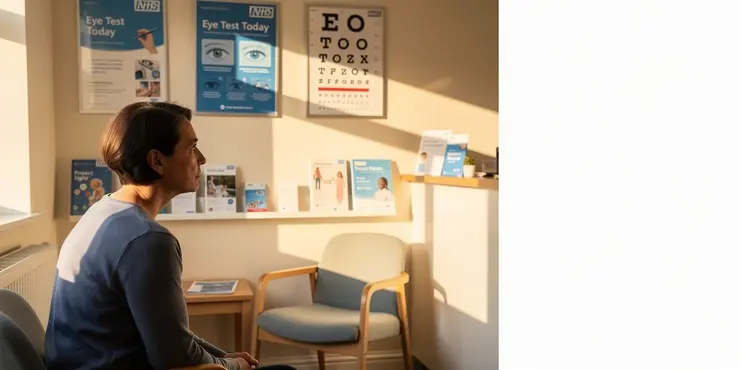
Do I need any special equipment for eye self-testing?
Relevance: 79%
-
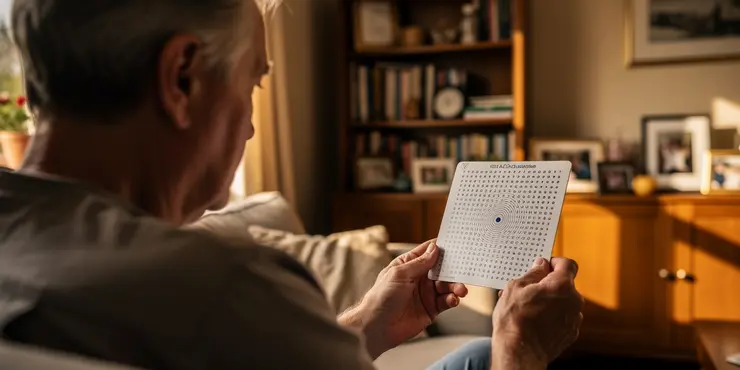
What types of self-tests are available for eye patients?
Relevance: 77%
-
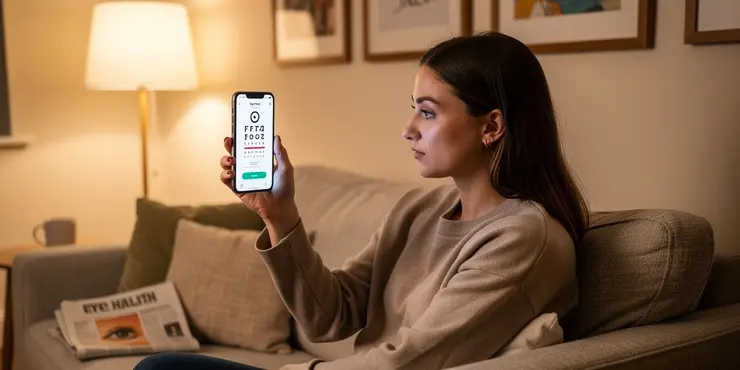
Can I use a smartphone for self-testing my eyes?
Relevance: 71%
-
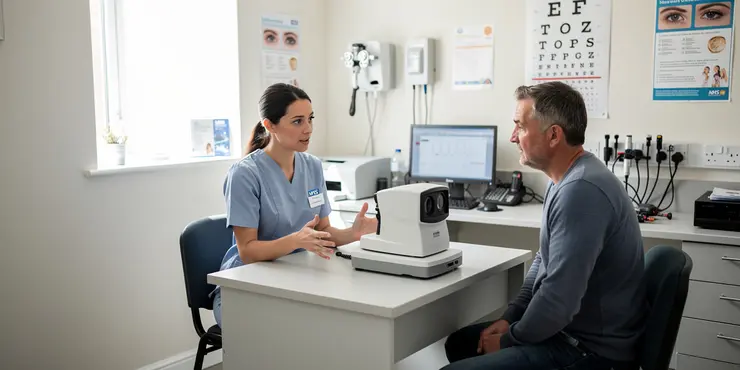
Are there any self-tests for eye pressure?
Relevance: 70%
-
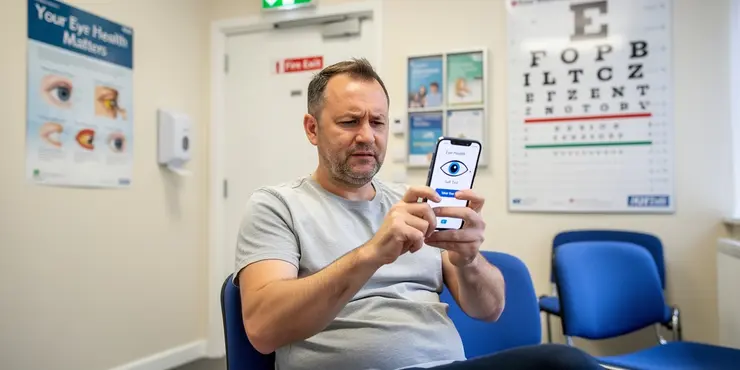
How does self testing for eye patients work?
Relevance: 63%
-
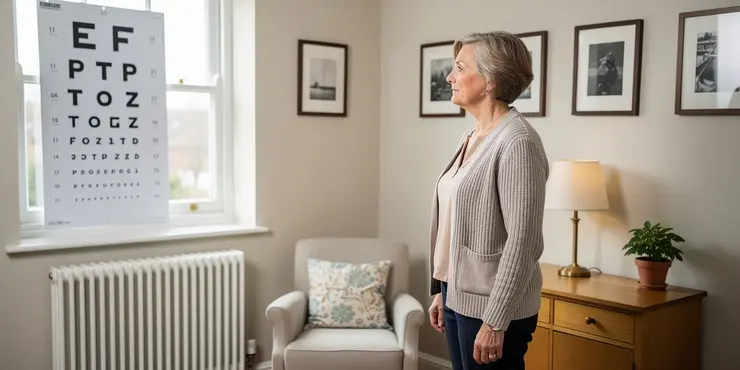
How do I use a vision chart for self-testing?
Relevance: 58%
-
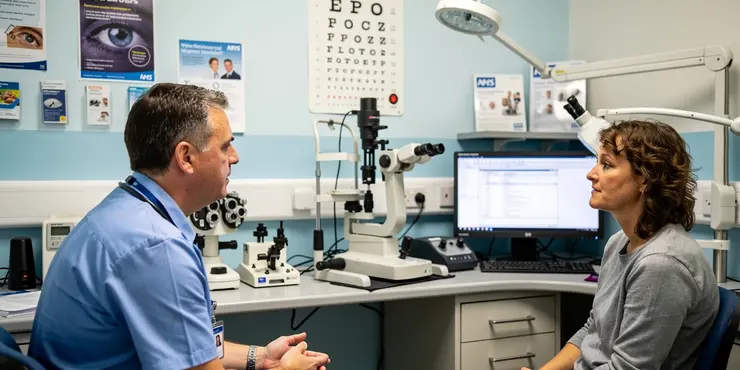
What is the eye condition hypotony?
Relevance: 55%
-
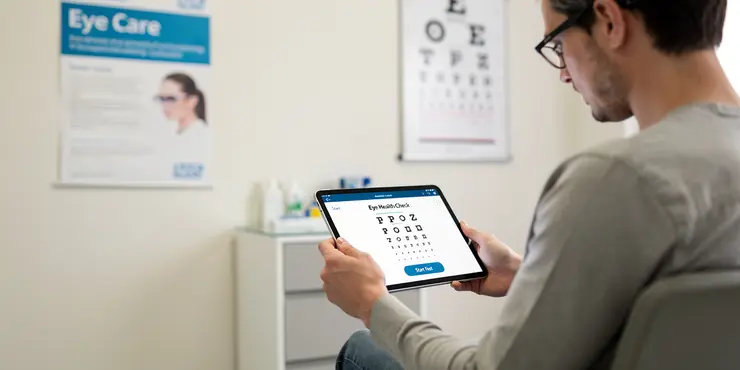
Where can I find reliable self-testing tools for my eyes?
Relevance: 54%
-
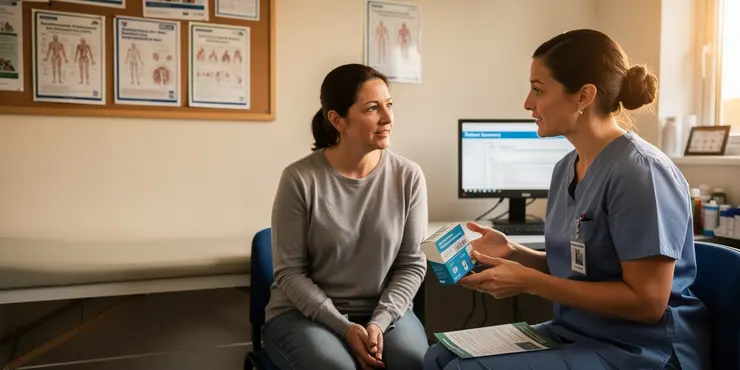
Is it possible for self-tests to cause harm?
Relevance: 51%
-
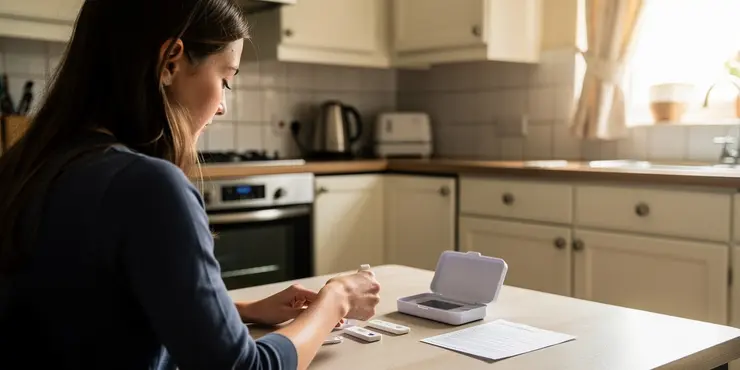
What age groups can benefit from self-testing?
Relevance: 48%
-
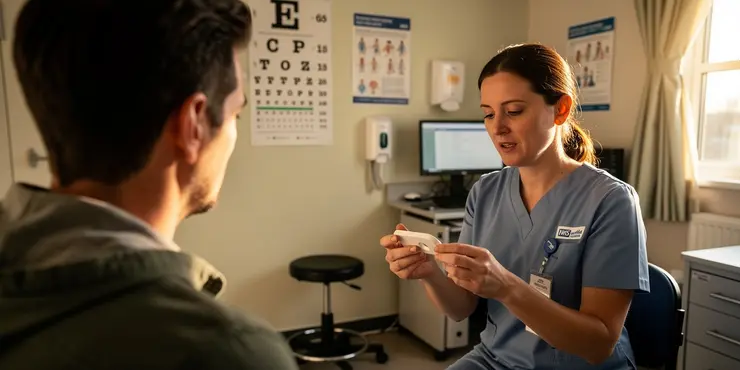
Do insurance plans cover the cost of self-testing tools?
Relevance: 47%
-
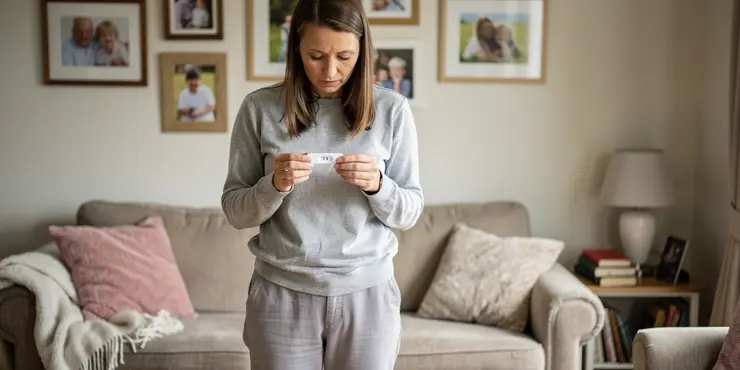
What should I do if I notice changes during self-testing?
Relevance: 46%
-
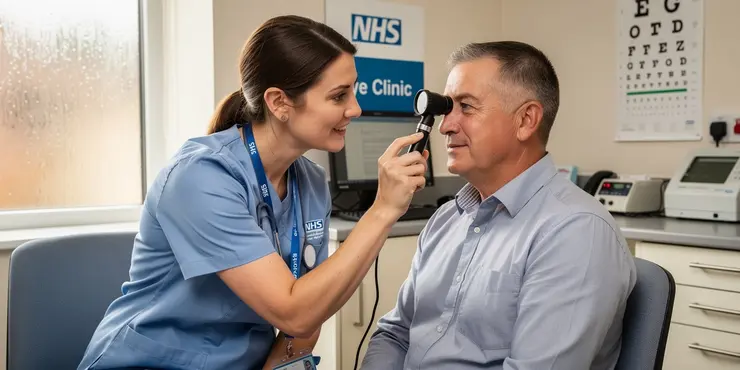
What is hypotony in the eye?
Relevance: 40%
-
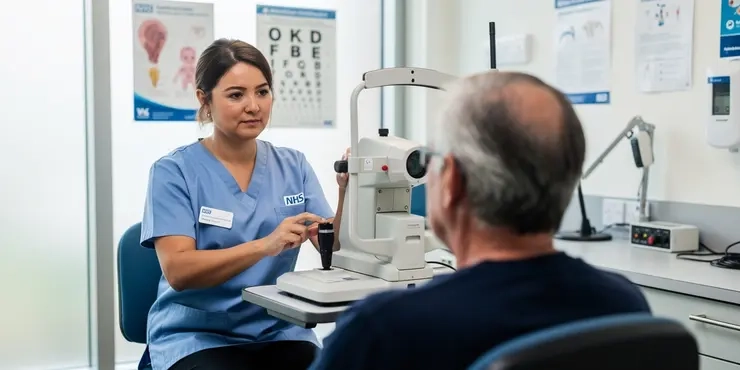
Derbyshire Diabetic Eye Screening - Diabetic Eye Screening
Relevance: 39%
-
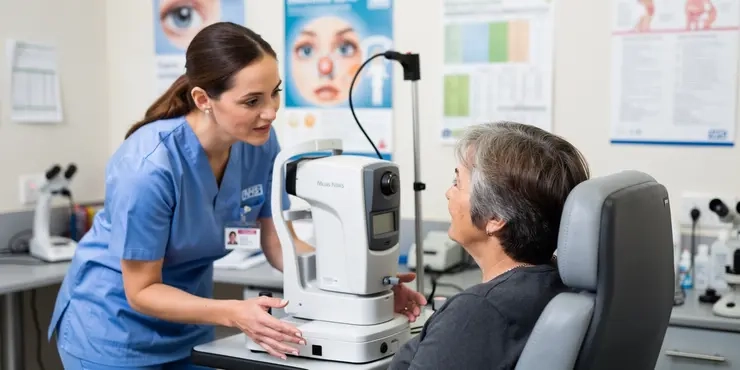
Diabetes Eye Screening
Relevance: 38%
-
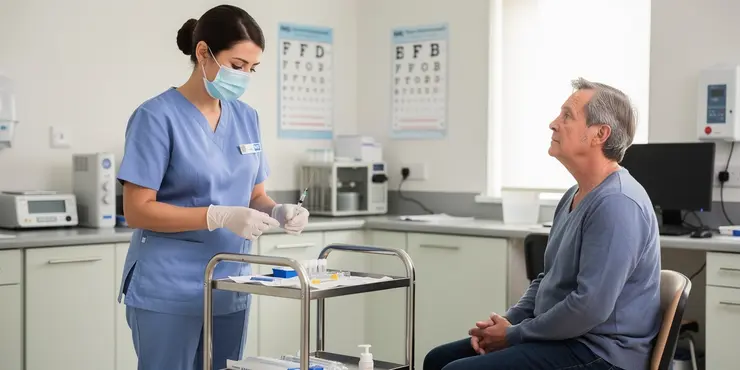
Eye Injections at Royal Bournemouth Hospital
Relevance: 38%
-
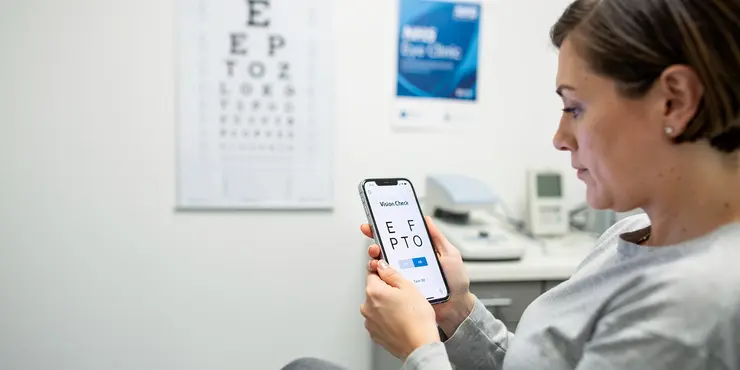
How accurate are app-based eye tests?
Relevance: 37%
-
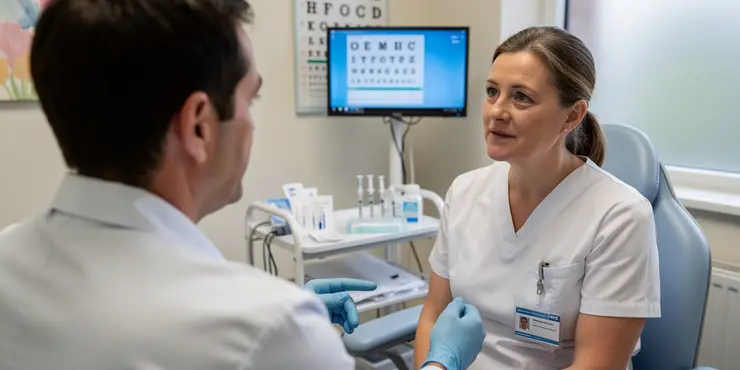
Eye Injections at Royal Bournemouth Hospital
Relevance: 36%
-
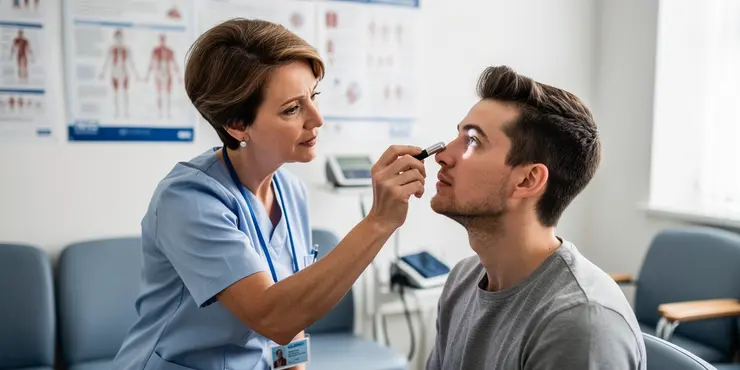
West Midlands LEHN Animated Video on Eye Health
Relevance: 36%
-
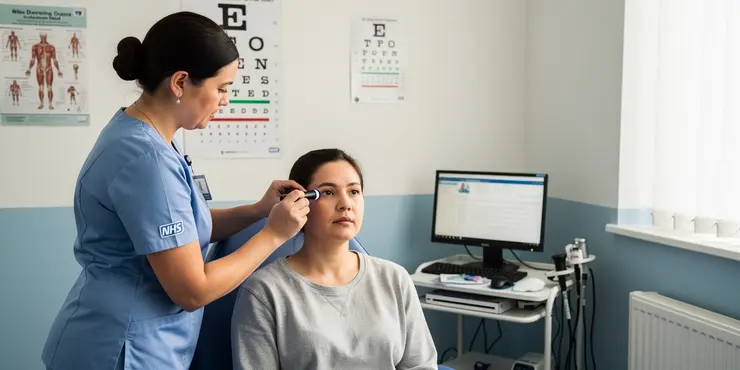
Can hypotony occur in both eyes?
Relevance: 35%
-
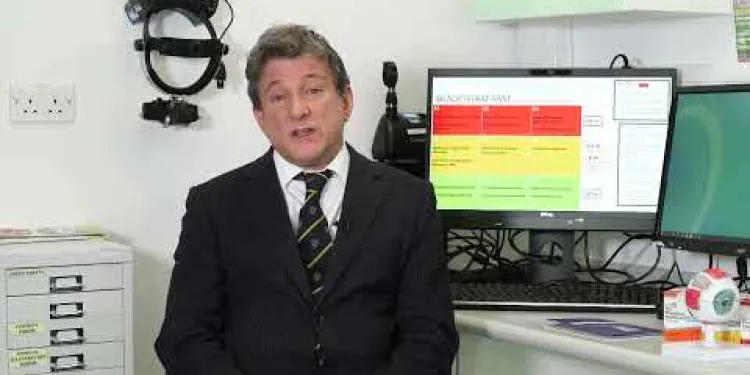
Glaucoma: how often should i take my eye drops?
Relevance: 35%
-
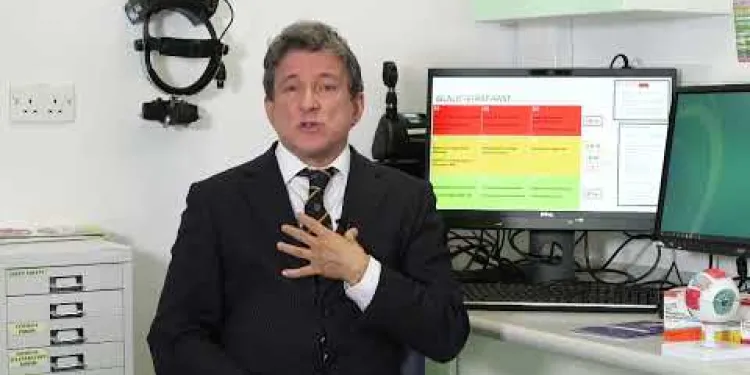
Glaucoma: general side effects of eye drops
Relevance: 34%
-
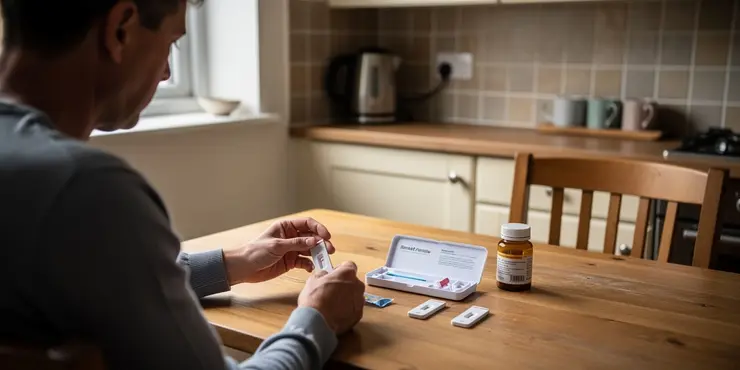
Can self-testing help me track my prescription changes?
Relevance: 33%
-
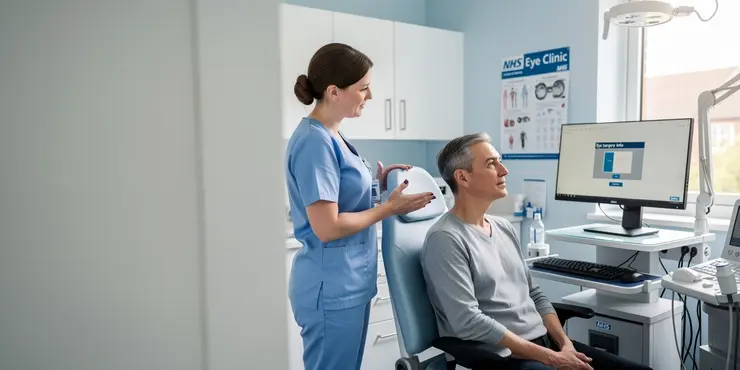
Thyroid eye disease. Squint surgery - The operation
Relevance: 33%
-
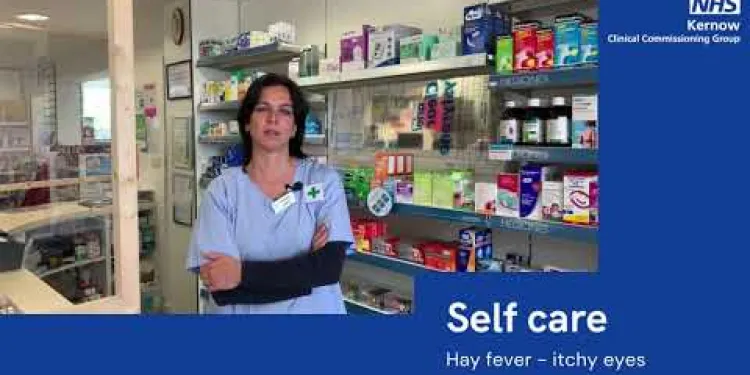
Self care - hay fever itchy eyes
Relevance: 33%
-
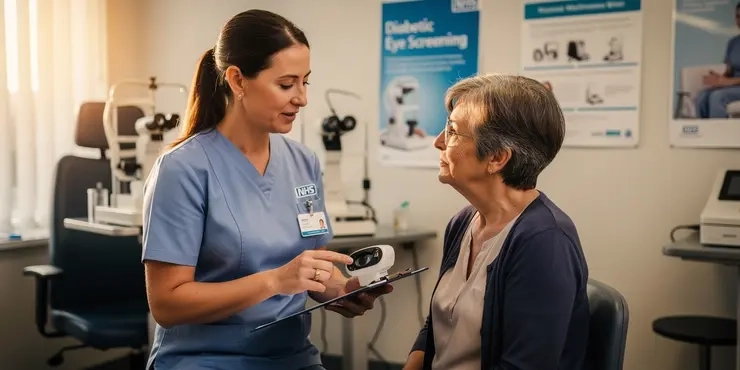
Derbyshire Diabetic Eye Screening - Your Screening Appointment
Relevance: 32%
-
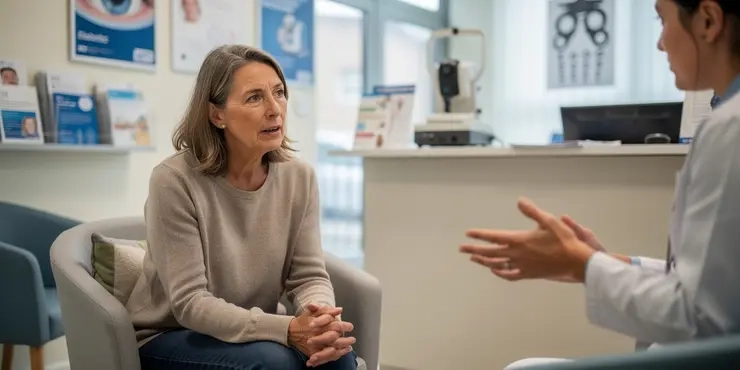
Derbyshire Diabetic Eye Screening - Assessment Clinic Appointment
Relevance: 31%
-
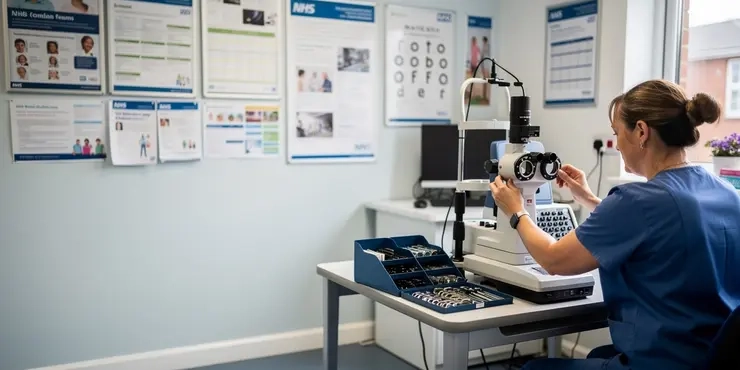
North Yorkshire Diabetic Eye Screening Programme - A day in the life
Relevance: 30%
-
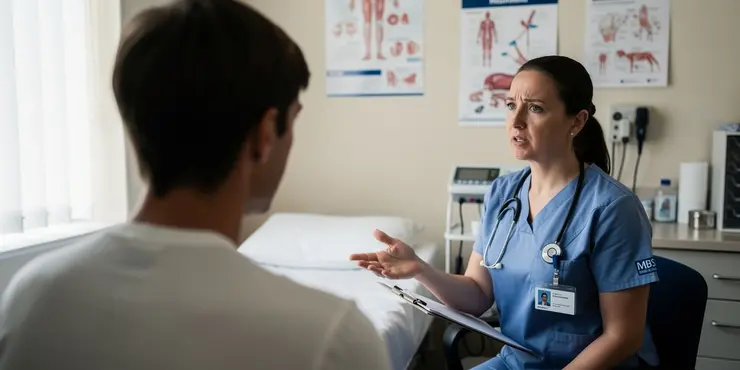
Can hay fever symptoms mimic other conditions?
Relevance: 30%
-
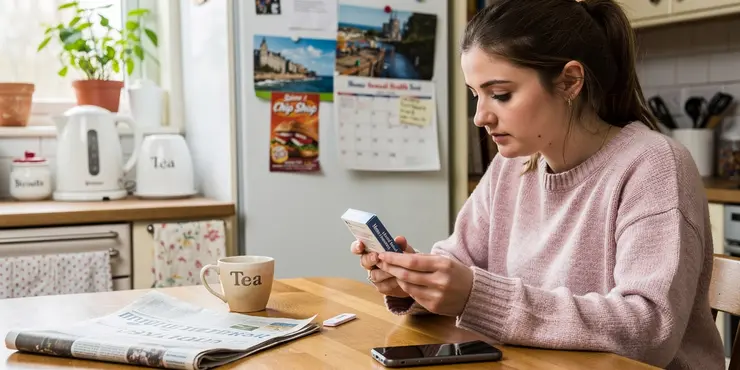
Let's Talk Sexual Health - Home Self Testing Kits
Relevance: 26%
-
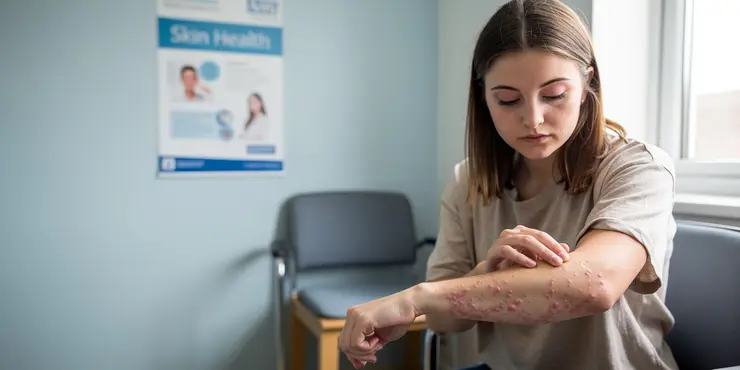
Hives - Skin Condition
Relevance: 26%
-
Is tinnitus a common condition?
Relevance: 24%
-
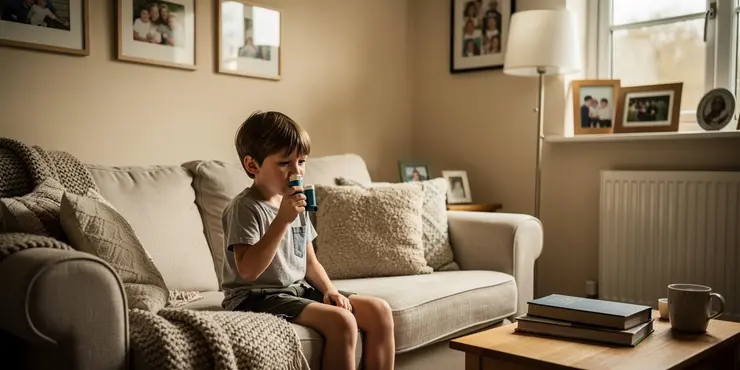
Is asthma a serious condition?
Relevance: 24%
Can Self-Testing Detect All Eye Conditions?
Self-testing for eye conditions has become increasingly popular as technology advances and people look for ways to monitor their health with convenience. However, the question arises as to whether self-testing can detect all eye conditions. While self-testing can be useful for certain aspects of eye health, it is important to understand its limitations and the necessity of professional eye examinations.
The Potential of Self-Testing
Self-testing can be particularly effective for monitoring vision clarity and detecting changes in vision. Online vision tests, for instance, can help individuals assess whether their vision has changed, potentially indicating a need for prescription glasses or a change in prescription. Apps and online tools have also been developed to test colour vision and screen for certain kinds of visual distortions.
Limitations of Self-Testing
Despite the convenience, self-testing has significant limitations. Many serious eye conditions, such as glaucoma and age-related macular degeneration, do not initially present obvious symptoms that can be detected through simple self-assessments. These conditions require specialised equipment and professional expertise to diagnose accurately. Self-tests often lack the sensitivity and specificity needed to detect subtle or asymptomatic eye abnormalities.
The Importance of Professional Eye Examinations
Regular eye examinations conducted by optometrists or ophthalmologists are crucial for comprehensive eye health evaluation. Professionals are equipped with the tools and expertise necessary to examine internal eye structures, measure intraocular pressure, and identify the early signs of diseases that might not be detectable through self-testing. Routine professional check-ups can lead to early intervention and treatment, potentially preventing vision loss or other complications.
Conclusion
While self-testing for eye conditions offers convenience and can be beneficial for early detection of changes in vision or refractive errors, it cannot detect all eye conditions. The technology available for self-testing lacks the comprehensive capabilities required to diagnose serious eye diseases. Therefore, it is crucial not to rely solely on self-testing but to supplement it with regular professional eye examinations. In the UK, individuals are encouraged to follow guidelines for routine eye exams to ensure they maintain optimal eye health. These guidelines stress the importance of visiting an eye care professional at the recommended intervals, particularly for those over a certain age or with existing health conditions that may impact vision.
Can Self-Testing Find All Eye Problems?
Checking your eyes at home has become more popular. People use technology to keep track of their health easily. But can we spot all eye problems with home tests? While these tests can be helpful, they can't do everything. You still need to see an eye doctor.
What Self-Testing Can Do
You can use self-tests to check how clearly you see. Some online tests check if your vision has changed. This is useful to know if you need glasses or if your glasses prescription needs to change. There are also apps to check if you can see colors properly or to find some vision problems.
What Self-Testing Can't Do
Although easy to use, home eye tests have limits. They can’t find serious eye problems like glaucoma or macular degeneration. These problems might not show clear signs at first. To find them, you need special tools and a doctor. Home tests might miss things that need professional checking.
Why You Need to See an Eye Doctor
Seeing an eye doctor regularly is very important. Doctors have special tools to look inside your eyes. They can check for things that home tests can miss, like eye pressure or early signs of diseases. Going to the doctor can help catch problems early, which means better treatment and less risk of losing sight.
Conclusion
Self-testing your eyes is handy and can spot some changes in how you see. But it can't find all eye problems. The tools you use at home are not as good as what doctors use. Don't just rely on self-tests. See an eye doctor regularly. In the UK, people are advised to have routine eye exams to keep their eyes healthy. It’s especially important if you are older or have health problems that can affect your vision.
Frequently Asked Questions
Can self-testing detect all eye conditions?
No, self-testing cannot detect all eye conditions. While it can help identify some vision issues, many conditions require a professional eye examination for accurate diagnosis.
What are the limitations of self-testing for eye conditions?
Self-testing is limited in scope and accuracy. It may miss early symptoms of serious conditions like glaucoma or retinal detachment, which require professional tools to detect.
Which eye conditions can self-testing reliably detect?
Self-testing can be somewhat reliable for detecting refractive errors like nearsightedness or farsightedness but is not suitable for diagnosing complex eye conditions.
Why is a professional eye exam more accurate than self-testing?
Professional eye exams are conducted by qualified optometrists or ophthalmologists who use specialized equipment to accurately diagnose a wide range of eye conditions.
Is self-testing a good substitute for a professional eye exam?
No, self-testing should not substitute for a professional eye exam as it cannot provide a comprehensive assessment of your eye health.
Can self-testing provide reliable results for vision correction needs?
Self-testing can give a rough estimate but is not reliable enough for precise vision correction prescriptions like glasses or contact lenses.
Are there any self-tests for detecting color blindness?
Yes, there are self-test apps and online resources that can help detect color blindness, but confirmation from a professional is advisable.
What role do self-tests play in managing eye health?
Self-tests can help monitor basic vision and flag potential issues, prompting users to seek professional advice when necessary.
Can online vision tests replace in-person eye exams?
No, online vision tests lack the comprehensive evaluation capabilities of in-person exams and should not replace routine eye check-ups.
How often should I have a professional eye exam?
It is recommended to have a professional eye exam every 1-2 years, or more frequently if you have existing eye conditions or are at higher risk.
Can self-tests detect age-related eye conditions?
Self-tests are generally ineffective at detecting age-related conditions like macular degeneration, which require professional screening.
Are smartphone apps for eye self-testing reliable?
While convenient, most smartphone apps for eye testing lack the accuracy of professional tools and should not be solely relied upon for diagnoses.
Can self-testing detect eye diseases in children?
Professional pediatric eye exams are crucial for detecting eye conditions in children, as self-tests are not designed for this purpose.
Do self-tests for eyes have any risks?
There are no direct risks, but relying solely on self-tests might delay the diagnosis and treatment of serious eye conditions.
Can asymptomatic eye conditions be detected by self-testing?
Many asymptomatic conditions, like early-stage glaucoma, can only be detected through professional eye exams.
Is it necessary to see an eye specialist if self-tests indicate no issues?
Yes, even if self-tests show no issues, regular visits to an eye specialist are important to ensure comprehensive eye health.
Are there conditions where self-testing could be dangerous?
While not dangerous directly, relying on self-testing for conditions like retinal detachment can delay necessary treatment.
Can I use self-testing to monitor a diagnosed eye condition?
Self-testing can complement professional care in monitoring vision changes but should not replace regular check-ups.
What should I do if self-tests indicate a possible problem?
If self-tests indicate a problem, it's important to schedule a professional eye examination to confirm and address any issues.
How do self-tests differ from professional diagnostic tests?
Professional diagnostic tests include comprehensive evaluations with specialized equipment that self-tests cannot replicate.
Can self-testing find all eye problems?
No, testing your eyes by yourself can't find all eye problems. It can help find some vision issues, but many problems need a doctor to check your eyes to find out what is wrong.
What can't self-testing for eye problems do?
Self-testing can help find if there might be a problem with your eyes.
But it can't do everything. Here are some things it can't do:
- It can't replace a real doctor's check-up. Only a doctor can give a full eye exam.
- It might not find all problems. Some issues need special tests.
- It might not be as exact as a doctor's tests.
If you think you have an eye problem, it's important to see a doctor.
You can use tools like a magnifying glass to help you read.
Reading with a friend or family member can also be a good idea!
Doing eye tests by yourself can be tricky and might not work well. You might not see early signs of serious eye problems like glaucoma or when part of the eye (the retina) starts to come off. These problems need special tools that doctors have to find them.
What eye problems can you find with self-tests?
Testing your own eyes can help you find out if you need glasses to see close up or far away. But, it can't help you find out if you have other eye problems.
Why is it better to see an eye doctor than to test your eyes yourself?
It is better to see an eye doctor because they have special tools to check your eyes.
Eye doctors know a lot about eyes, and they can find problems you might miss.
If you test your eyes yourself, you might get the wrong result and miss an important problem.
Getting your eyes checked by a doctor is safer and more accurate.
Ask an adult for help to book an eye doctor appointment.
Eye check-ups are done by special doctors who know a lot about eyes. They use special tools to find out if there are any problems with your eyes.
Can I check my eyes at home instead of going to the eye doctor?
No, testing your eyes by yourself is not the same as seeing an eye doctor. An eye doctor can check your eyes properly to see if they are healthy.
Can you trust your test results when checking your eyes at home?
Testing your eyes by yourself can give you a basic idea, but it is not good enough to know the exact changes you need in glasses or contact lenses.
Can I do a quick test to see if I am color blind?
Yes, you can use apps and websites to check for color blindness by yourself. But it is a good idea to see a doctor to be sure.
How do self-tests help take care of your eyes?
Simple eye tests can help you check your sight. If you notice something wrong, it's a good idea to see an eye doctor.
Can online eye tests take the place of visiting an eye doctor?
No, tests you do online can't check your eyes as well as going to the eye doctor. It's important to see the eye doctor for your regular eye check-ups.
How often should I get my eyes checked by an eye doctor?
Go to the eye doctor every 1 to 2 years. If your eyes have problems, go more often. It is important if you have special eye issues or your family has eye problems.
Can you use a test at home to find eye problems when you get older?
Self-tests do not work well for finding eye problems that happen as we get older, like macular degeneration. A doctor needs to check your eyes to find these problems.
Can you trust phone apps to test your eyes?
Many people find phone apps for eye tests easy to use. But these apps are not as good as seeing an eye doctor. Do not use them to find out if you have an eye problem.
Can children use simple tests to find eye problems?
It’s very important for children to see a special eye doctor. This doctor can find problems with their eyes. You can't do these tests at home.
Are eye self-tests safe?
Using only self-tests for your eyes is not dangerous by itself. But it might mean you don't find out about eye problems as quickly. This can delay getting help from a doctor.
Can you find eye problems if you don't feel any symptoms by testing at home?
Sometimes, your eyes might have problems, but you can't feel them. These are called "asymptomatic" eye problems.
It can be hard to find these problems by testing your eyes at home.
It's a good idea to visit an eye doctor. They have special tools to check your eyes properly.
If you need help to understand or remember this, you can:
- Ask a friend or family member to read with you.
- Use audio tools to hear the information.
- Take notes or draw pictures to help you remember.
Some problems with eyes, like when you first start to get glaucoma, don't show any signs. You can't tell anything is wrong just by looking or feeling. Only eye doctors can find these problems during an eye test.
If you want to check your eyes, you should see an eye doctor. They have special tools to look at your eyes and find any problems early.
You can use tools like audiobooks and text-to-speech apps to help read and understand information better.
Do I need to visit an eye doctor if my eye tests seem fine?
Yes, it is important to visit the eye doctor regularly, even if your own tests seem fine. The eye doctor can check for eye problems you might not see yourself.
Can self-testing be unsafe sometimes?
Self-tests are not dangerous by themselves, but they can make you wait too long to see a doctor for big problems like retinal detachment.
Can I check my eyes at home if a doctor says I have an eye problem?
Testing your eyes at home can help you see changes, but you still need to visit an eye doctor.
What should I do if my test shows there might be a problem?
If your test shows there might be a problem:
- Stay calm: Remember, it is okay. You are doing the right thing by checking.
- Check again: Maybe take another test to be sure.
- Ask for help: Talk to a trusted adult or a healthcare worker. They can help you know what to do next.
Here are some tools that can help:
- Use a calendar: Write down when you took the test and the results.
- Talk to someone: Ask a friend or family member to help you understand the results.
It’s important to take care of yourself. You are doing a great job by being careful.
If tests show you might have a problem with your eyes, it's a good idea to see an eye doctor. They can check your eyes and help fix any issues.
What is the difference between tests you do yourself and tests done by a doctor?
Doctors use special tests with special machines. These tests are very good and do things that home tests can't do.
Useful Links
This website offers general information and is not a substitute for professional advice.
Always seek guidance from qualified professionals.
If you have any medical concerns or need urgent help, contact a healthcare professional or emergency services immediately.
Some of this content was generated with AI assistance. We’ve done our best to keep it accurate, helpful, and human-friendly.
- Ergsy carfully checks the information in the videos we provide here.
- Videos shown by Youtube after a video has completed, have NOT been reviewed by ERGSY.
- To view, click the arrow in centre of video.
- Most of the videos you find here will have subtitles and/or closed captions available.
- You may need to turn these on, and choose your preferred language.
- Go to the video you'd like to watch.
- If closed captions (CC) are available, settings will be visible on the bottom right of the video player.
- To turn on Captions, click settings .
- To turn off Captions, click settings again.
More Items From Ergsy search
-

Can self-testing detect all eye conditions?
Relevance: 100%
-

What are the limitations of self-testing for eyes?
Relevance: 89%
-

What is self-testing for eye patients?
Relevance: 87%
-

How often should I self-test my eyes?
Relevance: 84%
-

Are self-tests a substitute for professional eye exams?
Relevance: 83%
-

Why would someone need to self-test their eyes?
Relevance: 82%
-

Should I share the results of my self-tests with my eye doctor?
Relevance: 81%
-

Do I need any special equipment for eye self-testing?
Relevance: 79%
-

What types of self-tests are available for eye patients?
Relevance: 77%
-

Can I use a smartphone for self-testing my eyes?
Relevance: 71%
-

Are there any self-tests for eye pressure?
Relevance: 70%
-

How does self testing for eye patients work?
Relevance: 63%
-

How do I use a vision chart for self-testing?
Relevance: 58%
-

What is the eye condition hypotony?
Relevance: 55%
-

Where can I find reliable self-testing tools for my eyes?
Relevance: 54%
-

Is it possible for self-tests to cause harm?
Relevance: 51%
-

What age groups can benefit from self-testing?
Relevance: 48%
-

Do insurance plans cover the cost of self-testing tools?
Relevance: 47%
-

What should I do if I notice changes during self-testing?
Relevance: 46%
-

What is hypotony in the eye?
Relevance: 40%
-

Derbyshire Diabetic Eye Screening - Diabetic Eye Screening
Relevance: 39%
-

Diabetes Eye Screening
Relevance: 38%
-

Eye Injections at Royal Bournemouth Hospital
Relevance: 38%
-

How accurate are app-based eye tests?
Relevance: 37%
-

Eye Injections at Royal Bournemouth Hospital
Relevance: 36%
-

West Midlands LEHN Animated Video on Eye Health
Relevance: 36%
-

Can hypotony occur in both eyes?
Relevance: 35%
-

Glaucoma: how often should i take my eye drops?
Relevance: 35%
-

Glaucoma: general side effects of eye drops
Relevance: 34%
-

Can self-testing help me track my prescription changes?
Relevance: 33%
-

Thyroid eye disease. Squint surgery - The operation
Relevance: 33%
-

Self care - hay fever itchy eyes
Relevance: 33%
-

Derbyshire Diabetic Eye Screening - Your Screening Appointment
Relevance: 32%
-

Derbyshire Diabetic Eye Screening - Assessment Clinic Appointment
Relevance: 31%
-

North Yorkshire Diabetic Eye Screening Programme - A day in the life
Relevance: 30%
-

Can hay fever symptoms mimic other conditions?
Relevance: 30%
-

Let's Talk Sexual Health - Home Self Testing Kits
Relevance: 26%
-

Hives - Skin Condition
Relevance: 26%
-
Is tinnitus a common condition?
Relevance: 24%
-

Is asthma a serious condition?
Relevance: 24%


